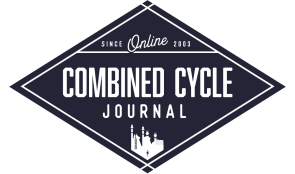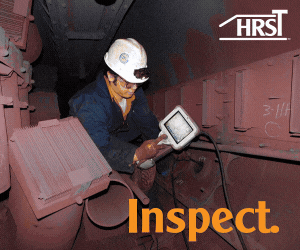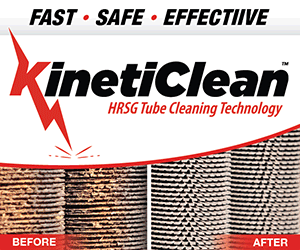HRSG Forum debuts under the Power Users umbrella, June 12-15, in the Renaissance Atlanta Waverly Hotel & Convention Center. Bob Anderson, who has moderated the lion’s share of power-industry meetings focused on the information needs of HRSG owner/operators for the last 25 years, will be at the front of the room once again. Although the pandemic kept Anderson off the live stage for the last three years, he continued to serve the user community, broadcasting worldwide via the web on Channel CCJ.
The upcoming meeting and vendor fair will be packed end-to-end with information of incomparable value to users, consultants, and services providers. All three segments of the industry qualify for participation in all sessions. The long-awaited event begins on Monday, June 12, with two special workshops; a traditional conference program—one reminiscent of past HRSG meetings with Bob Anderson—airs Tuesday and Wednesday. EPRI Day is Thursday, focusing on the research organization’s comprehensive work in the fields of HRSGs and high-energy piping.
Here’s an overview of the four-day conference:
DAY ONE SPECIAL WORKSHOPS
The morning workshop focuses on water, specifically the importance of film-forming substances (FFS) in the modern world of powerplant operations. Barry Dooley of Structural Integrity (UK), the workshop moderator, will make the introductory presentation to bring attendees up to speed with a backgrounder on FFS, relatively new technology for powerplants in North America. Dooley, a member of CCJ’s Editorial Advisory Board, has been sharing his FFS experiences with the periodical’s subscribers for five years.
Several speakers—users and chemical suppliers, follow Dooley digging into the details of powerplant experience both here and in other countries. To learn more about the program, click the link.
The afternoon workshop, moderated by Jeff Henry of Applied Thermal Coatings, respected worldwide for his knowledge of boilers, materials, welding, and the ASME Code, will speak to the following:
- Tools for supporting the safe, efficient operation of aging high-energy piping.
- Creep damage experienced by operation of elevated temperatures.
- Structure of welds and damage in welds at elevated temperatures.
- Characterizing indications found in welds and their size and orientation.
- Understanding repair objectives.
- Proper excavation of damage.
- What the industry-wide loss of expertise means for plant owners and operators.
Before you pack your bags for the HRSG Forum meeting in Atlanta, be sure to do your homework. Absent a textbook, thumb through back copies of CCJ to jog your memory. The more you know, the better organized you are, more value you’ll extract from the meeting. There aren’t many opportunities to access directly the knowledge held by Anderson, Dooley, and Henry, as well as other experts on the program—without later receiving an invoice.
DAY TWO and THREE HIGHLIGHTS
- HRSG steam-vent silencer safety inspections.
- Innovative tube repair technology.
- Ultrasonic detection of spray-water leakage.
- HRSG safety/relief valve maintenance.
- HRSG damage monitoring system.
- Update and stats on HRSG cycle-chemistry control and FAC.
- NDE and inspections for the aging HRSG fleet.
- Attemperator inspections and repairs
- HRSG tube-failure analysis shared by the Qurayyah combined-cycle.
- Replacing HP evaporators.
- Wireless monitoring system for high-energy piping.
DAY FOUR
Learn from the details shared by EPRI from its HRSG and piping program—including the following:
- Industry challenges, in particular the loss of expertise and what this means to plant owners and operators.
- Recent activities with high-temperature components.
- Safety alert: State of knowledge and screening methodology for header endcaps.
- Mitigating damage related to attemperators/desuperheaters.
- Recent activities with low-temperature components.





